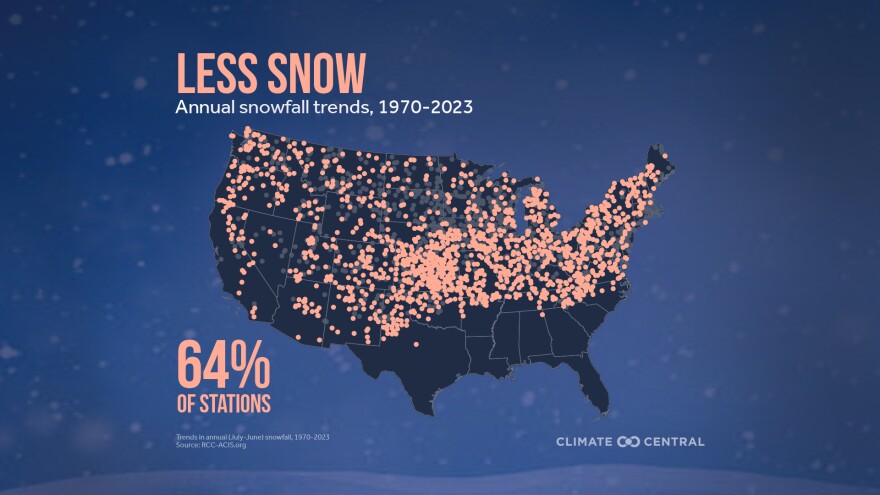Since the early 1970s, less snow has fallen in nearly two-thirds of snow stations across the country, according to research group Climate Central, which analyzed decades of annual snowfall trends in over 2,041 locations.
In the Mountain West, snowfall has decreased in many areas of Nevada, Idaho, Wyoming, Colorado, New Mexico, and Utah. What’s more, some of the nation’s steepest declines are in the region. Notable examples include Gascon, N.M., where snowfall has decreased by 76 inches; Red Lodge, Mont. (69 inches); Crested Butte, Colo. (65 inches); Ruxton Park, Colo. (59 inches); and Fillmore, Utah (50 inches).

Each state has a few areas where snowfall has increased over the past 50 years. But the broader trend of less snowfall, which impacts the West in many ways, is driven by human-caused climate change, said Kaitlyn Trudeau, a senior research associate at Climate Central.
“What winter means, what snow means to people culturally, just for our environment, and for our ecosystems, for our water supplies, it’s just incredibly important,” Trudeau said. “As we see snowpack decline, it not only means that we have more unstable and less water resources, but it also means that it's going to take a big hit on the mountain economies, the places where they really rely – ski resorts, snow parks.”
Less snow is also bad for farmers, who face the risk of not having enough water to irrigate their crops.
This story was produced by the Mountain West News Bureau, a collaboration between Wyoming Public Media, Nevada Public Radio, Boise State Public Radio in Idaho, KUNR in Nevada, KUNC in Colorado and KANW in New Mexico, with support from affiliate stations across the region. Funding for the Mountain West News Bureau is provided in part by the Corporation for Public Broadcasting.




